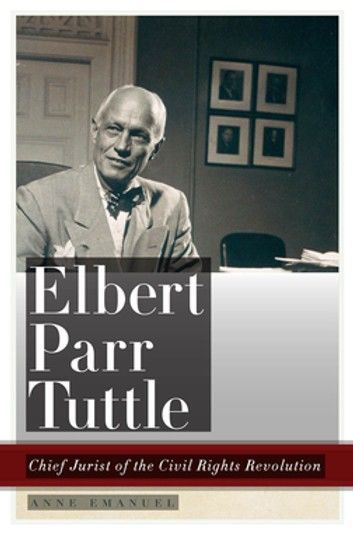| FindBook |
有 1 項符合
Elbert Parr Tuttle的圖書 |
 |
Elbert Parr Tuttle 作者:Anne Emanuel 出版社:University of Georgia Press 出版日期:2011-10-01 語言:英文 |
| 圖書館借閱 |
| 國家圖書館 | 全國圖書書目資訊網 | 國立公共資訊圖書館 | 電子書服務平台 | MetaCat 跨館整合查詢 |
| 臺北市立圖書館 | 新北市立圖書館 | 基隆市公共圖書館 | 桃園市立圖書館 | 新竹縣公共圖書館 |
| 苗栗縣立圖書館 | 臺中市立圖書館 | 彰化縣公共圖書館 | 南投縣文化局 | 雲林縣公共圖書館 |
| 嘉義縣圖書館 | 臺南市立圖書館 | 高雄市立圖書館 | 屏東縣公共圖書館 | 宜蘭縣公共圖書館 |
| 花蓮縣文化局 | 臺東縣文化處 |
|
|
This is the first—and the only authorized—biography of Elbert Parr Tuttle (1897–1996), the judge who led the federal court with jurisdiction over most of the Deep South through the most tumultuous years of the civil rights revolution. By the time Tuttle became chief judge of the United States Court of Appeals for the Fifth Circuit, he had already led an exceptional life. He had cofounded a prestigious law firm, earned a Purple Heart in the battle for Okinawa in World War II, and led Republican Party efforts in the early 1950s to establish a viable presence in the South. But it was the intersection of Tuttle’s judicial career with the civil rights movement that thrust him onto history’s stage.
When Tuttle assumed the mantle of chief judge in 1960, six years had passed since Brown v. Board of Education had been decided but little had changed for black southerners. In landmark cases relating to voter registration, school desegregation, access to public transportation, and other basic civil liberties, Tuttle’s determination to render justice and his swift, decisive rulings neutralized the delaying tactics of diehard segregationists—including voter registrars, school board members, and governors—who were determined to preserve Jim Crow laws throughout the South.
Author Anne Emanuel maintains that without the support of the federal courts of the Fifth Circuit, the promise of Brown might have gone unrealized. Moreover, without the leadership of Elbert Tuttle and the moral authority he commanded, the courts of the Fifth Circuit might not have met the challenge.
|









